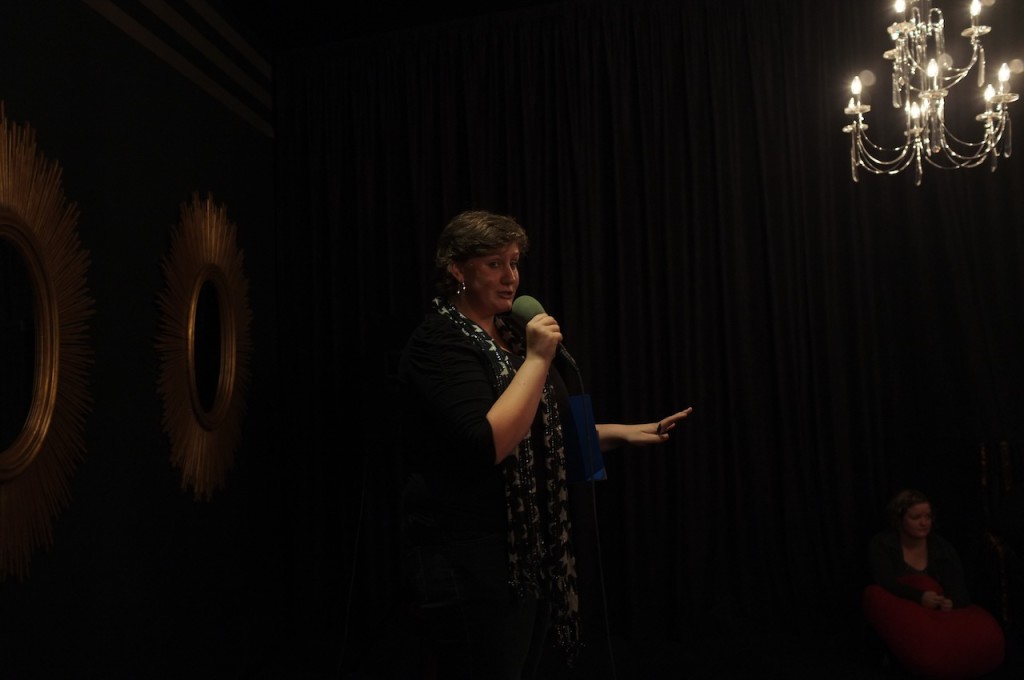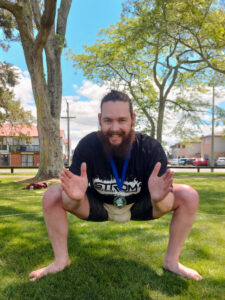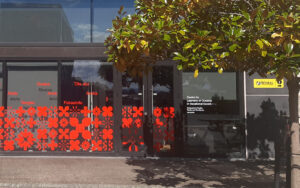Rainy Mondays Slammed
Spread the spoken word: poetry slams have arrived on the Hamilton scene, courtesy of Kashka Tunstall.
Another rainy Monday night in Hamilton and the Lido Cinema lounge is crowded with people sitting on an odd assortment of beanbags and couches. An impromptu stage has been set up, supporting a precarious looking stool and microphone. While most of the group chatter and drink wine, others stare fixedly at words scrawled on paper torn at the creases – perhaps a result of frequent study. Moviegoers look on curiously as the crowd quietens and a young woman takes the stage.
She tells the audience she has an African name – a name she says she was fated to receive: “How were my parents to know that I would feel akin to Langston Hughes, that I would extol his virtues? How would they know that I would have the same views as Zora Neale Hurston? That Nelson Mandela would become an idol to me and teach me about grace and the promise of equality? How would they know?”

She has no paper in her hand.
Kashka Tunstall is both a performer and the organiser of the second Hamilton Poetry Slam – a spoken word event where anything goes. The 21-year-old says she writes from experiences: being one of those kids at school that constantly has to explain their name, for example.
She first became interested in spoken word or slam poetry – a combination of poetry and performance – after stumbling across a talk by American spoken word poet Sarah Kay online. She quickly became addicted to the fast paced, energetic, and often rude, style of the performances, and spent hours watching them on Youtube.
“I’ve always really liked beat poetry from the beat generation like Jack Kerouac and Alan Ginsberg, that kind of era. It’s not really spoken word poetry but I guess it kind of started it. So I caught onto spoken word really quickly.”
Tunstall, a Wintec journalism student who started writing poetry at an early age, decided to take up slam poetry herself but quickly found that there was little opportunity to perform: “I wanted to try spoken word and there was nowhere I could do it in Hamilton so I thought the best way to give it a go was to start something myself.”
Smooth operation
For someone who is at times alarmingly unorganised – she has just finished explaining that she has two assignments due in a few days that she has not even started – Tunstall pulled together the first slam effortlessly. As a part-timer at the Lido she managed to convince her boss to give up part of the cinema’s foyer and used Facebook to promote the event. She borrowed chairs from her local high school and acquired a sound system from a family friend. There was even a bowl of jellybeans to be passed round after the show.
Nervous and unsure of what to expect, Tunstall set up for the first event on Anzac day and waited to see if anyone would show up. An hour later, almost 100 people were squashed in armchairs and sitting on the floor, and 12 performers were waiting anxiously for their turn.
There were some small speed bumps – one performer had to pull out at the last minute when he realised he probably wouldn’t be able to make it on time from Hamilton, Ontario in Canada.
Performers varied from teenage students to a 90-year-old grandmother. Some performed original material, others read from published works by well-known poets. They were each given five minutes to share whatever they liked.
[pullquote]I think you need to be sincere, you need to do it your own way and you need to give it everything you’ve got.”[/pullquote]
And it’s this freedom of expression that Tunstall finds most appealing in spoken word.
“I’ve always loved poetry, but if you write a sonnet, you write a sonnet, if you write a haiku it’s a haiku, there’s not a lot of style variation. With spoken word there’s not really any rules, I think that is the thing that’s really nice. It can be about anything, and you can write it any way you want and no one can tell you that it’s not really spoken word.”
She continues to find inspiration in both traditional style romantic poets – “everybody knows I have a big thing for [John] Keats, and then there’s Shakespeare’s sonnets” – and also contemporary, edgy writers like American slam poet Rives who she had the opportunity to meet at the Auckland Writers and Readers Festival in May. He gave her one piece of advice – when you get on stage, you need people to fall in love with you.
Later that weekend Tunstall performed in front of Rives and a few hundred others at the festival’s poetry slam, a big achievement for someone who performed for the first time at the audition.
She says she felt self-conscious of her performing style at first – she tends to talk very fast and excitedly – but realised that if she tried to perform like anyone else, she would just be “copying some methodical script”.
“I think you need to be sincere, you need to do it your own way and you need to give it everything you’ve got. You can’t be holding anything back: if you’re embarrassed, if you’re not sure, if you don’t want to talk to people that’s how you’re going to come across.”
Drawing on experience
Taking experiences from her life – some everyday, some life changing – is how Tunstall approaches writing.
One such experience was the day after her 15th birthday when she was told she had 18 months to live. She had a rare form of leukaemia and faced six months of violent chemotherapy followed by a year of medication. Fortunately she managed to defy the odds and has been in remission for over five years. She says the experience has had a huge influence on her writing but that she is reluctant to focus on it too much.
“I want people to like my poetry because it’s cool or interesting, not because it has sad, cancer stuff in it.”
Another significant influence is her Mormon religion. She often uses poetry as a way to challenge her own faith. She says that nothing is 100 per cent certain and it’s human nature to question things.
“I think it’s important go through that, because if you haven’t, you haven’t really made the decision to follow anything, you are just going with it.”
She says writing spoken word has given her a real opportunity to think about her own experiences and how to make them relatable for other people.
Local poet and Wintec creative writing tutor Gail Pittaway says that this ability to share work is what makes the Hamilton Poetry Slam so successful.
“Poetry tends to be quite personal and there’s a lot of solitude when you’re a writer, you tend to be a bit of a loner, and she’s broken down all of that and created an opportunity for us to come together to talk and listen.”
She was in the audience at the first slam and performed a small collection of her own work at the second.
Pittaway says she was “bowled over” by the energy and the enthusiasm of the presenters, particularly Tunstall: “I think she has very reflective work, it’s very challenging and makes you think and also it takes you along on a journey, it’s a very sustained narrative. She is a good poet and she’s doing really well, particularly for someone of her age.
“She’s got a wonderful manner and ability to pull things together and she also manages each time to do a performance of her own, a work from memory, so I have nothing but the highest respect and appreciation for what she’s giving us, I think it’s a wonderful new addition to our winter evenings in Hamilton, and I think it will just grow. So I’m very, very proud of the work that she has done as one of our students.”
She hopes that more people will take up spoken word and says it will appeal to younger writers as it is not rule bound and can even get “quite raunchy”. She says the audience is comfortable with that – there’s no one taking notes, it’s just an easy, fun environment.
With a bit of luck the dynamic won’t change when the Slam is moved to Waikato Museum later this month.
When Kashka Tunstall’s five minutes is up, the audience begins to disappear back out into the drizzly Monday weather.
Watch Kashka Tunstall perform at the third poetry slam –
A slideshow of first poetry slam with the audio of Kashka Tunstall performing her poem –




